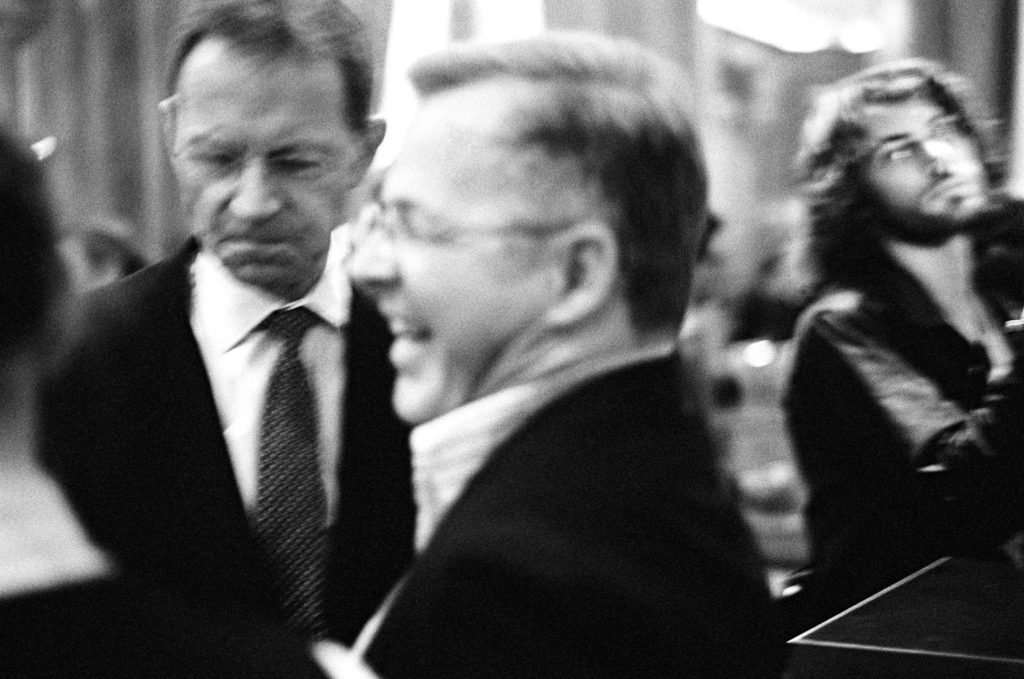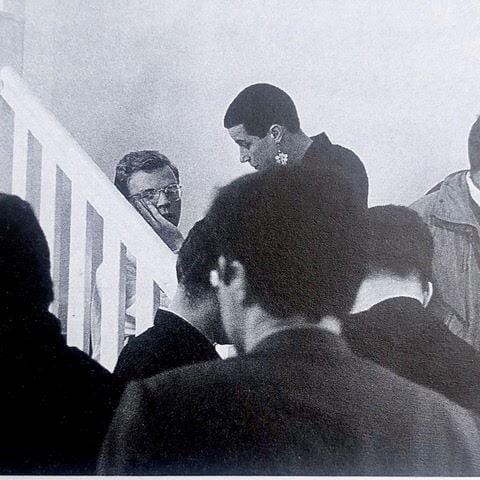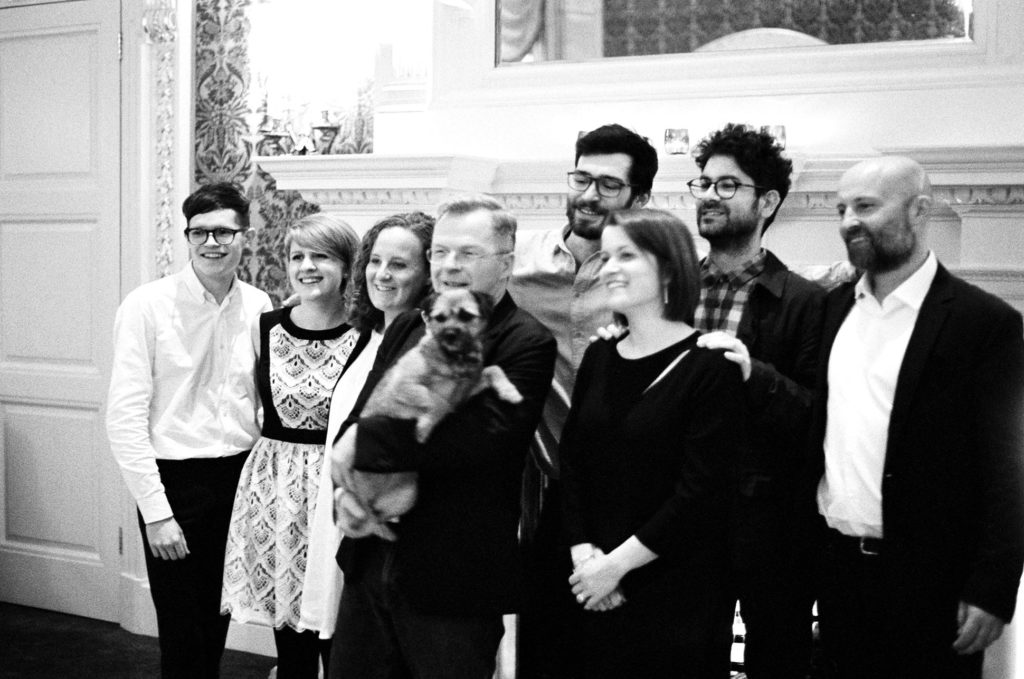People
‘His Generosity Is Legendary’: Artists and Curators Remember the Trailblazing London Gallerist Karsten Schubert
Nicholas Serota, Nicholas Cullinan, and others pay tribute to the influential dealer.

Nicholas Serota, Nicholas Cullinan, and others pay tribute to the influential dealer.

Javier Pes

Although they rarely end up in history books, gallerists play a larger role than some would like to admit in determining what art makes it into the public sphere. One dealer who transformed Britain’s cultural life and shaped its art history is the late Karsten Schubert (1961–2019), who died last week of thyroid cancer at age 57. In recent days, there has been an outpouring of appreciation from artists, museum directors, and others who witnessed Schubert’s outsize impact on the art of the 20th century.
“It’s no exaggeration to say that without him, the whole British scene from the early ’90s would not have happened in the same way,” says curator Andrew Renton, who collaborated with Schubert on a history of London’s art scene during the decade.
The erudite gallerist and publisher, who moved to London from Berlin as a young man in the ’80s, was one of the first to realize that the UK’s growing art scene was going to be a force to be reckoned with—and that it would need a new kind of gallery to support it. Schubert had the vision and confidence to open a gallery with an international outlook in his 20s and was instrumental in launching the art publisher Ridinghouse decades before larger galleries would follow suit.
Schubert survived multiple recessions to become something of an elder statesmen in the British art world, never losing his youthful enthusiasm for art, art books, and museums. As a child, he showed a precocious interest in contemporary art; he may be the only 11 year old to have asked his mother to take him to documenta in Kassel. This energy remained with him until the end; just this summer, he was planning exhibitions from his hospital bed.
“He could be extravagant in buying art and publishing books, but so simple in other aspects of his life,” says Schubert’s friend and fellow art dealer Thomas Dane. “No first-class travel for Karsten, no expensive clothes, no wine cellar.”

Karsten Schubert deep in conversation with gallerist Maureen Paley, around 1988. Photo courtesy of Andrew Renton.
As an energetic young gallerist, Schubert championed younger British artists, many of whom were women. That, coupled with his international outlook, immediately set him apart in London at the time. Nicholas Serota, the former director of the Tate, first met Schubert when he was working at Lisson Gallery. He recalls how the bright young German “was unusual as a dealer because you often felt he could have gone and worked in a museum, but he wanted to work very closely with artists. Dealing gave him that opportunity.”
Always amused by the follies of the art world, Schubert was the antithesis of a dilettante art dealer—nor was he primarily interested in closing a deal.
In his first gallery on Charlotte Street, a former brothel in Fitzrovia, Schubert showed the work of Ed Ruscha, Martin Kippenberger, Günther Förg, Louise Bourgeois, and Katharina Fritsch, among others, giving many their London debuts. “You never saw artists like that in London at the time,” says the artist Ben Langlands.
Indeed, London then was hardly a contemporary art hub: there were fewer galleries, especially ones run by younger dealers, and the Tate had not yet been turned into an international powerhouse. Schubert paved the way for the likes of Jay Jopling’s White Cube and Sadie Coles HQ, among others. Schubert’s friend and colleague, the gallerist Maureen Paley, recalls his boundless energy on their travels to places such as Cologne and New York and his “great eye informed by a deep knowledge of art history.”
“Karsten was exceptional,” says Nicholas Cullinan, the director of the National Portrait Gallery. “Everything he did was with an elegant rigor. He had real integrity, enlivened by a mischievous sense of humor, and a joy in living.”
While many thought the YBAs would end up as so-called “one-hit wonders,” Schubert recognized that something important was happening that needed to be properly acknowledged and encouraged. He showed many of the YBAs early on in their careers, including Rachel Whiteread, Gary Hume, Anya Gallaccio, and Michael Landy. “He was the right person, at the right time, with the right attitude,” Langlands says.
Over a pizza in 1990, Andrew Renton, now a professor of curating at Goldsmiths College in London, discussed with Schubert the urgent need for a book about what was going on in London. “Before we had finished the pizza, [publishing company] Thames & Hudson had agreed to publish to the book” and they had a long list of artists to include written on the back of Schubert’s checkbook. A couple of months later, Technique Anglaise: Current Trends in British Art was out. “All Karsten’s doing,” Renton says.
Three decades later, Schubert’s own publishing company, Ridinghouse, boasts a large and wide-ranging lineup of handsomely designed catalogues and collections of critical writing about the artists he admired, including many volumes on Bridget Riley, with whom he worked for many years.
While forced to close his first gallery in the recession in the late ’90s (accompanied by an unhappy split with Rachel Whiteread, who joined the dealer Anthony D’Offay), Schubert’s commitment to artists and publishing continued undimmed. He also curated a critically acclaimed survey of Riley’s work, and groundbreaking exhibition of early figurative paintings by Piet Mondrian, both with David Zwirner.

Karsten Schubert, with Tess the dog, and gallery colleagues at the launch of his novel Room 225-6, 2015. Photograph by Carla Borel.
As Schubert’s fortunes recovered as a gallerist, he became a generous donor to UK museums. Stephen Coppel, the British Museum’s curator of modern prints and drawings, says Schubert was extraordinarily generous, donating around 30 works ranging from a Josef Albers “half-square” to a Degas sketch of an Old Master.
Schubert donated the latter on the eve of a grueling operation for his rare form of thyroid cancer in 2014, partly to “engineer a positive outcome,” he later told the Financial Times. Schubert wrote about his post-op recuperation in the semi-fictional book Room 225-6, which was inspired by is stay in London’s Claridge’s Hotel. He was, he said, “truly grateful to [his] solid German genes” that he pulled through, and to the two friends who paid for his post-surgery stay in the luxury hotel. Proceeds from the sale of the book supported medical research.
Schubert was also fondly remembered for hosting get-togethers in his book- and art-filled apartment in north London, which he shared with his beloved terrier, Tess. At a recent gathering, Schubert offered guests free T-shirts with the slogan “Die Brexit Die.” The droll, Anglo-German humor was quintessential Karsten Schubert.
Shortly before his death, Schubert donated his extensive library to the Norwich University of the Arts in the East of England. He also gifted eight drawings and prints by Cézanne, plus 12 long-term loans to the Whitworth Gallery at the University of Manchester. An exhibition accompanied by a scholarly publication by Ridinghouse opens there on August 24.
During Frieze Week in London, Karsten Schubert’s gallery will present “Dialectical Materialism: Aspects of British Sculpture since the 1960s,“ a group show of work by Anthony Caro, Barry Flanagan, Richard Long, William Turnbull, Rachel Whiteread, and Alison Wilding.
“I will miss Karsten’s exceptional eye, his breadth of knowledge and his good advice, his ridiculous sense of humor,” Wilding tells artnet News. “He was such fun to be with. His generosity is legendary, and we will all miss him.”